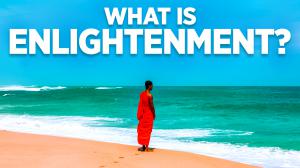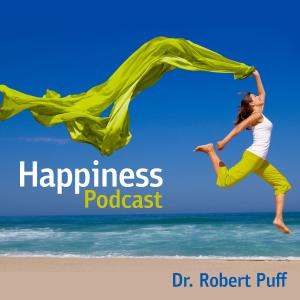What is Enlightenment?
In the West, we often refer to enlightenment as self-actualization.
NEWPORT BEACH, CALIFORNIA, USA, February 26, 2021 /EINPresswire.com/ -- Enlightenment is a term that feels elusive for many. We may have images of a Hindu guru, sitting on top of a mountain contemplating the universe. Or a Buddhist monk living in a monastery, meditating daily. Or, maybe even in your own life, you’ve had moments that are intense or mystical and have caused you to feel enlightenment, just for a moment.One of my favorite definitions of enlightenment is from Lao Tzu, who references enlightenment as the Tao. “The Tao that can be told is not the eternal Tao. The name that can be named is not the eternal name.”
This definition may not seem helpful if you’re seeking a more concrete definition of enlightenment is, versus what enlightenment is not. Today we’ll provide a more tangible definition of this feeling and existence.
In the West, we often refer to enlightenment as self-actualization. Whatever verbiage we use, the ultimate understanding of enlightenment is this: it’s the highest level we can reach as humans, in our lifetime. Whether it’s through our own experiences of living at such an exquisite level or someone else’s experience who’ve we met or read about, that seems to be flowing with life. These experiences can seem vague or unclear to those who haven’t experienced them firsthand. Is there a definition for enlightenment that is more tangible and allows us to know when we’ve reached the highest level of being?
Lao Tzu was correct in saying that enlightenment cannot be described, but I believe we can paint a picture of it. For example, if you’ve ever been to the Grand Canyon before, it’s hard to describe how vast and beautiful it is. But you might be able to paint a picture of it that will better capture its beauty. Today, I’m going to paint a picture of enlightenment.
Similar to the Grand Canyon, enlightenment is infinite and massive. And by painting enlightenment today, I’ll provide a clue into what enlightenment is. Through my journey in life, the most accurate definition of enlightenment I’ve found is this: enlightenment is the radical acceptance of what is.
So what does this mean, and how can I apply this to my life?
Let’s begin with the question: why do we struggle? We struggle because we fight against what is. What that means is, we may not like or be comfortable with what is happening right now in our lives or in the world, so we fight against it. We have expectations, desires, and fears about the way things should and should not go in our lives. And when our lives don’t go the way we expect them to, we get upset, angry, or sad and disrupt our inner peace. Our own expectations create discord and disharmony inside of us because life sometimes has other plans than the ones we’ve created. As a result, these negative emotions get in the way of our ability to simply flow with life.
Even when we’ve done everything we can to stay in control of everything, and life says ‘I’ve got other plans in mind,’ we find ourselves at a common crossroads - do we stay at peace and accept what is, or choose to fight against it?
The opportunity to choose radical acceptance presents itself several times throughout our days. And if we choose it, that path will create enlightenment or enlightened moments. If we ignore that path, we will face discontent and disrupted inner peace.
Let’s look at some examples to better illustrate enlightened moments and unenlightened moments, and examine how we can use radical acceptance to help our lives run better throughout the day.
Didn’t sleep well last night
There are some nights where it’s impossible to get a full eight hours. Let’s say, you wake up after only sleeping for two hours the night before. If you were to fight against this undesirable scenario your first thought may be “this is horrible” or “I’m going to be exhausted today, or get a headache later on.” These thoughts are so common, especially when we’re sleep-deprived.
If you lead with radical acceptance, your first thought may be “‘Oh, I didn’t sleep much last night, I wonder what today will look like. I’m okay right now, so I’ll just focus on this moment.” The key difference here is accepting what is out of your control.
Getting stuck in traffic on the way to work
Getting stuck in traffic is never fun, especially when you’re on your way to work. An unenlightened response to this situation may be wondering if you’re going to get in trouble, or ask the question “why me?” You may even beep your horn along with everyone else.
Leading with radical acceptance would look like accepting the fact that you’re going to be late, and there’s nothing you can do about it. Once you accept this fact, you can decide how you want to spend your extra 30 minutes. Instead of getting frustrated, you choose to listen to a podcast or listen to music to make the time more useful, and maybe even enjoyable.
When you arrive at work, you find out you’re getting laid off
This news is really tough, and of course, is going to cause some negative emotions. A person who is fighting against life may find themselves in a tailspin wondering if they’ll ever find work again or be able to pay their rent or mortgage. Someone who practices radical acceptance will also be sad or even angry. But, they are able to find rational thought in these moments - I need to pack up my things, I have enough money saved up for the essentials, and I’ll start looking for new work. They may even think that this moment could lead to a better opportunity or new adventure.
Your partner leaves you
This is devastating, no matter how often you practice radical acceptance. Negative emotions will come up no matter what. If you are someone who normally chooses to fight against life’s plans you may drink too much, or seek other unhealthy coping mechanisms to help ease the pain. If you choose radical acceptance, you will still feel anger and deep sadness. And through those feelings, you will still be able to take a breath, and focus on the moment. That may be as simple as cooking a meal or calling a friend. The key here is to take each moment as they come and do your best to get through it.
When we radically accept what is, we’re able to stop fighting life, and instead, flow with life. It’s not a state of passivity, but after we do what is in our control, we take a deep breath and do our best to accept the current situation, even if it wasn’t planned. This new thought process of knowing that we can handle anything that life throws at us will open us up to new opportunities. When a relationship ends, or we lose a job, we don’t force those doors to reopen, we seek new doors.
When we stop fighting what is, we start to experience life with a deep sense of peace. Radical acceptance presents the opportunity to look out at the world, in times of joy and disappointment, and say all is well.
#########################################################################################################
About the Happiness Podcast:
Do you ever wonder what it takes to lead a peaceful, happy life? Are you curious about the specific steps involved in a self-actualized, limitless life? Are you struggling with anxiety or depression? Or are you just plain tired and want some help? We explore all these concerns and more every week on the Happiness Podcast, which has been downloaded over 9 million times since its inception. Happiness does not happen by chance, but because we take specific actions in our lives to create it.
Dr. Robert Puff, Ph.D., author of 13 books, TV show host, Psychology Today blogger, and corporate trainer, has been studying the actions it takes to reach the highest levels of human achievement for decades, and he wants to share what he knows with you. Come and explore, along with millions of others from the Happiness Podcast, Dr. Puff books and Psychology Today blog, private clients and corporate workshop attendees, the specific steps to take so that you can soar in your life.
To learn more, go to: https://www.HappinessPodcast.org
Contact Dr. Robert Puff, Ph.D., Newport Beach Psychologist:
Email: DrRobertPuff@icloud.com
Phone: 1-714-337-4889
Connect on:
Instagram: https://www.instagram.com/robertpuffjr/
LinkedIn: https://www.linkedin.com/in/doctorpuff/
Twitter: https://twitter.com/HappinesPodcast
Facebook https://www.facebook.com/HappinessPodcast/
YOUTUBE: https://www.youtube.com/c/DrRobertPuff
Dr. Puff, Corporate Trainer: https://www.SuccessBeyondYourImagination.com
Dr. Puff, Clinical Psychologist: https://www.DoctorPuff.com
Dr. Robert Puff, Ph.D.
Happiness Podcast
+1 714-337-4889
email us here
Visit us on social media:
Facebook
Twitter
LinkedIn
What is Enlightenment?
Legal Disclaimer:
EIN Presswire provides this news content "as is" without warranty of any kind. We do not accept any responsibility or liability for the accuracy, content, images, videos, licenses, completeness, legality, or reliability of the information contained in this article. If you have any complaints or copyright issues related to this article, kindly contact the author above.



